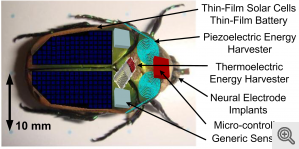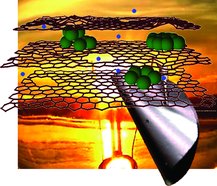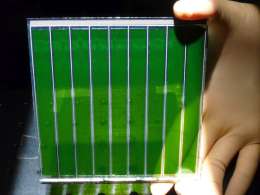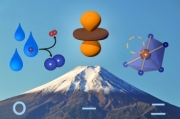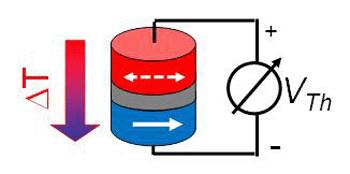Standford researchers developed an ultrafast nanoscale light emitting diode 2,000 times energy efficient
A group of young research students at School of Engineering from Standford has developed an ultrafast nanoscale light-emitting diode (LED) that is able to...
Living Cell Signals Recorded with Grapheme Transistor Array
The graphene based transistor array and its layer of biological cells that it covers it is now showed due to a combination of optical...
Low carbon future for cities
Investing 2% of a modern city’s GDP in low carbon and energy efficient opportunities for ten years would reduce that city’s carbon emission levels...
Converting the kinetic energy from wing movements of the insect into electricity
Professor Khalil Najafi, the chair of electrical and computer engineering, and doctoral student Erkan Aktakka are finding ways to harvest energy from insects, and...
Using solar energy to create renewable natural gas
HyperSolar, Inc. (OTCBB:HYSR), the developer of a breakthrough technology to make renewable natural gas using solar power, today disclosed more information from...
Silicon and graphene for better batteries
Imagine a cellphone battery that stayed charged for more than a week and recharged in just 15 minutes. That dream battery could be closer...
Dye-sensitized solar cells more efficient than silicon cells
Dye-sensitized Grätzel solar cells have just set a new efficiency benchmark. By changing the composition and color of the cells, an EPFL team has...
Tropical cyclones are intensified by air pollution
A recent increase in the intensity of tropical cyclones in the Arabian Sea may be a side effect of increasing air pollution over the...
Rechargeable batteries and hydrogen-fuel production cheaper now
A team of researchers at MIT has found one of the most effective catalysts ever discovered for splitting oxygen atoms from water molecules —...
Converting the energy of waste heat occurring in integrated circuits
The heat which occurs in tiny computer processors might soon be no longer useless or even a problem. On the contrary: It could be...


